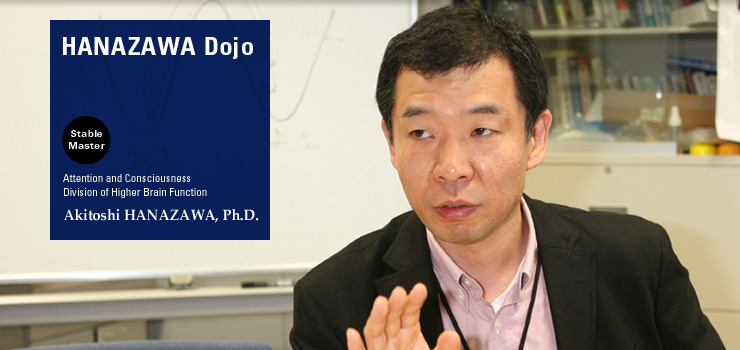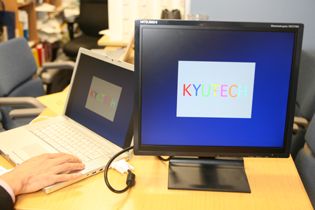 |
| |
 |
| Vision has been attracting considerable interest
in various research fields, such as neurophysiology, psychology
and mathematical models. Our laboratory covers all these fields
and concentrates particularly on the psychological approach
in Degeiko program . For example, the visual illusions frequently
used in experiments on vision are phenomena in which the brain
interprets the same image differently depending on where its
attention is focused. Thus, these phenomena provide important
clues in identifying how human vision works. The knowledge
and technology gained through visual recognition research
is currently being applied to visual recognition and decision-making
systems in humanoid robots. |
 |
| In
this program, students develop the ability to absorb
knowledge related to visual recognition in the brain
science field. Within three months, students will acquire
sufficient systematic knowledge to understand the contents
of field-related papers. For students involved in the
study of visual recognition in robots or image processing,
the knowledge of visual neuroscience helps their activity.
Students will receive training in such practical skills
as programming for making visual illusion by computer
graphics and skills for visual psychological experiments.
These activities may even lead to new discoveries concerning
vision. |
 |
|
|
|
|